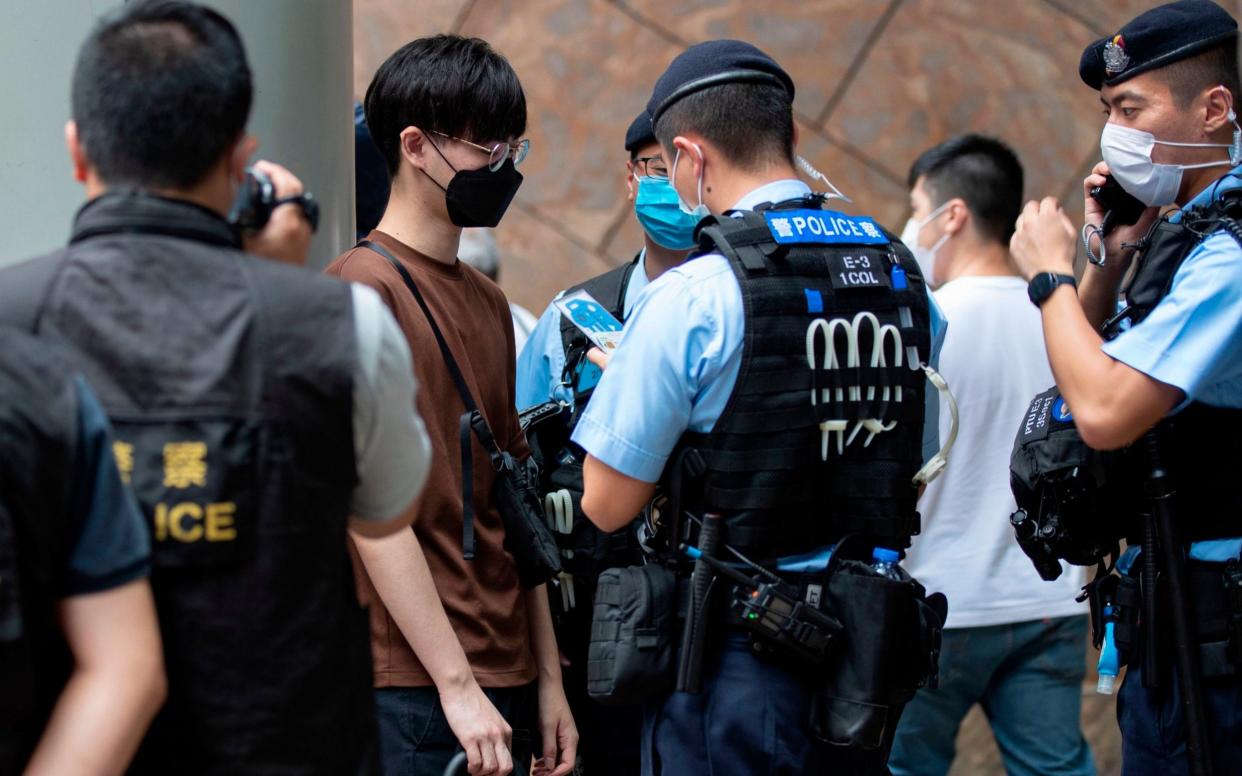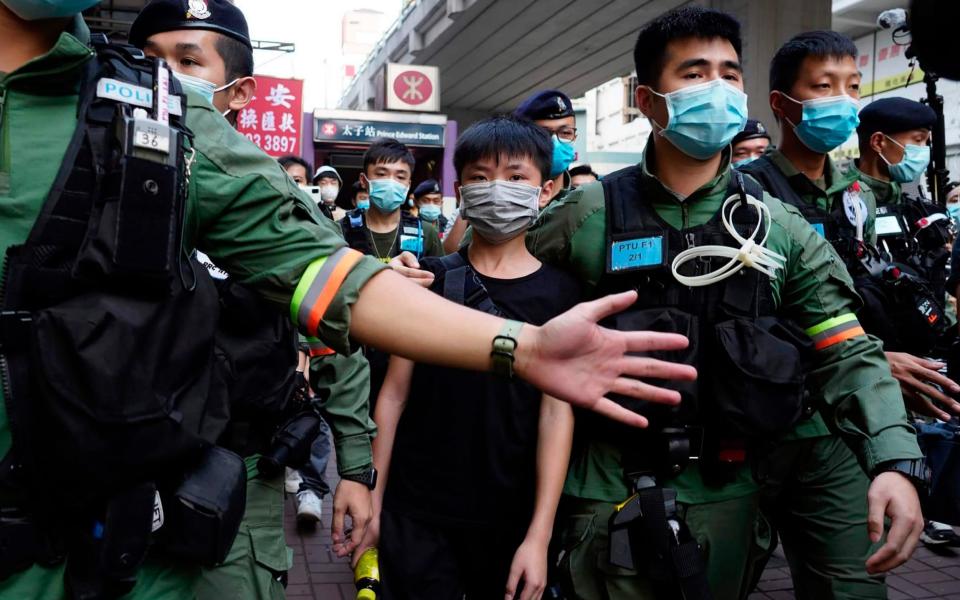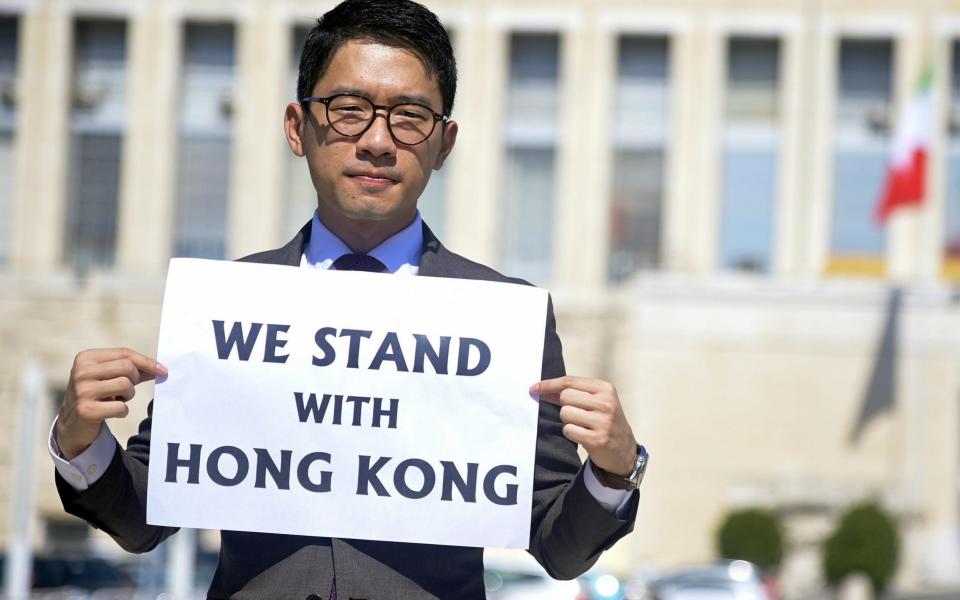British teachers consider resigning from Hong Kong schools amid fears lessons will violate national security law

British expat teachers at international schools in Hong Kong are self-censoring in classes, changing curriculums and even considering resigning, fearing that they will fall foul of a severe national security law imposed by Beijing.
Teachers interviewed by the Daily Telegraph described confusion and concern about how to operate in the classroom under the new law, which criminalises anything the authorities deem to be terrorism, secession, subversion, or foreign collusion, punishable by life in prison.
The ruling Chinese Communist Party is seeking to bring Hong Kong under control after mass pro-democracy protests roiled the city last year, the latest in a series of flare-ups over recent years as demonstrators speak out against encroaching Beijing rule.
“For the first time ever, I am going to be put in a position where I may have to censor or shut down a discussion,” said a teacher who has taught for decades at a British international school in Hong Kong.
“Under the new law, it seems that although a right to freedom of speech is still ‘allowed,’ you are not allowed to criticise the government,” he said. “If a student decided they wanted to create a piece of art or piece of theatre which explored the protests, I would not be able to allow that direction.”
Official curriculum changes so far have not been decided or mandated, said six teachers interviewed by the Telegraph, who requested anonymity over fear of retribution.
But many are already acting to scrub lessons of material that may be deemed illegal by the authorities.

One teacher said she and a colleague had discussed removing a unit “about standing up for your rights, using Rosa Parks as an example of peaceful protest.”
Ms Parks, often described as the mother of the US civil rights movement, was jailed in 1955 for refusing to give up her seat on a public bus to a white man, in violation of the city’s racial segregation law – a historic act of civil disobedience that sparked further changes.
Another colleague who teaches history was seeking advice on how to alter lessons about the Tiananmen Square massacre in 1989, when the Chinese military opened fire on peaceful student demonstrators.
Although discussion, and even public commemoration of the incident, had previously been allowed in Hong Kong given liberties guaranteed under the Sino-British Joint Declaration, critics of the national security law worry that will no longer be the case given the sensitivity of what happened.
The Chinese government has never fully acknowledged the Tiananmen massacre. More than three decades later, government censors routinely block references to what happened, and suppress relatives of those who died from speaking out around the anniversary.
British teachers say international schools have also issued guidance instructing them to be “very careful about maintaining a neutral stance, and not saying anything inappropriate on social media,” said one teacher, 56, originally from Milton Keynes.

Education officials in Hong Kong have already banned outright at schools the singing of political songs, displaying political slogans and forming human chains. Books deemed politically sensitive have already been pulled from public library and school shelves.
The teachers are anxious more changes are coming in response to the national security law, and the uncertainty is enough to prompt some of them to consider quitting and leaving Hong Kong altogether.
Others worry about losing their jobs as teachers if parents begin pulling their children out of international schools out of concern a broader liberal education would be deemed illegal.
“Remind yourself that you’re teaching the kids of parents who might have a more vested interest in Hong Kong,” for instance, the children of government officials, civil servants or police officers.
“It is a sad and scary development,” said one British expat teacher, 48.
Shrinking freedoms show that “Hong Kong has changed overnight in this respect,” said one teacher from Manchester.

